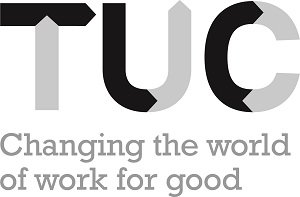What are Pressure Groups?
A Pressure Group is an organised group of people united in the promotion of a common cause. They are so-called because of their role in ‘pressuring’ governments to act in line with their group objectives.
Pressure Groups believe their objectives are best served outside Parliament, and although they sometimes endorse and support particular candidates, they rarely if ever stand representatives for election themselves.
Types of Pressure Groups
There is a Pressure Group fighting for every interest, group and idea imaginable in UK politics.
These interest groups come in many forms raging from Trade Unions (such as the Communication Workers Union), human rights groups (such as ‘Liberty’), animal campaign groups (such as the ‘Cats Protection League’), and business trade associations (such as the ‘Food and Drink Federation’).
Pressure Groups are typically seen as being split between those whose status places them as an ‘insider group’ as opposed to those who remain an ‘outsider’ group.
Insider Pressure Groups have direct access to top government officials and hence influence policy through meetings and negotiations.
Outsider Pressure Groups, on the other hand, are those without access to government, although not necessarily through want of trying. Outsider groups, tend to adopt media and social media campaigns as well as large demonstrations. One of British politics most famous outsider groups was the Stop the War Coalition (StWC) who organised the 2003 March against the Iraq War.
Insider and outsider groups are not preordained categories. For example, a particular Trade Union might be regarded as having ‘insider’ influence under a Labour government, but be something of an ‘outsider’ influence under a Conservative administration.
Pressure Groups and the Democratic Process
Pressure Groups serve important roles in liberal democracies. Their pluralist proponents argue that by providing functional representation, pressure groups prevent a ‘tyranny of the majority’ forming in society. Pressure Groups can thus remind governments how legislation might effect particular interests, or those who might otherwise be under represented or forgotten in Britain’s political system.
Pressure Groups also serve to help educate the public on the impact of decisions made in government and can hence mobilise public opinion in an influential manner.
Ultimately, Pressure Groups create a link between the public and the government. One major role of a Pressure Group is to advocate for their chosen interests between elections – a time when the government of the day might be considered to be at it most insensitive to public opinion.
Those who worry about the influence of Pressure Groups argue that rather than correcting a ‘tyranny of the majority’, Pressure Groups create a ‘tyranny of the minority’. Indeed, the former Foreign Secretary and Home Secretary, Douglas Hurd, once famously described Pressure Groups as ‘serpents that strangle efficient government’.
Critics also argue that Pressure Groups can be driven by powerful vested interests, ones which may conflict with the general will of the population as a whole. For example, this accusation has been levied against the Church of England in its campaigning against the possibility of assisted dying being introduced to reduce the suffering of the terminally ill in the United Kingdom.
It has also been pointed out that there is by no means an equality between pressure groups. Relative influence can come down to the group that possesses the most resources, the better connections, and the most talented and effective campaigning staff.
How do Pressure Groups exert influence
Pressure Groups regularly produce reports which provide suggestions for changes to public policy. Contributing to an vibrant democracy, many Pressure Groups are active in lobbying and hold meetings with government Ministers and elected politicians to outline their points of view.
Effective Pressure Groups generate campaigning material, and engage in advertising and promotion so as to bring their proposals to the attention of both the public and the political class.
Some Pressure Groups try to proactively assert their influence is by mobilizing their membership. Those organizations with strong local supporter bases can encourage those supporters to lobby and write to their local MPs, putting pressure on elected representatives, or at the very least bringing an issue to their attention. In recent years, the online petition functionality on the Parliamentary website has become a further potent weapon in the Pressure Group armoury.
The internet age has provided further means for pressure groups to promote their interests. Social media, and the use of social media animations, has spawned the emergence of the online petition, and provided a further novel and easy form of access to elected representatives.
Pressure Groups representing workers, have the ability to initiate strike action as a potential means of encouraging change. In 2015-2016 the Junior Doctors strikes generated a fair degree of public support, albeit that the British Medical Association failed to effect any change in government policy.
Pressure Groups sometimes also use legal means to further their objectives, filing law suits, and supporting test cases, as a further tactic to try and influence the branches of power.
At the same time, certain Pressure Groups like ‘Extinction Rebellion’, ‘Greenpeace’, the Animal Liberation Front’ and ‘Father’s for Justice’, operate under the belief that breaking the law can actually sometimes be a means of attracting the attention of both politicians and the wider public. As can be seen here, ‘Father’s for Justice developed their own particular direct take on this approach, throwing purple paint at then Prime Minister, Tony Blair as he stood at the Commons Dispatch Box.


